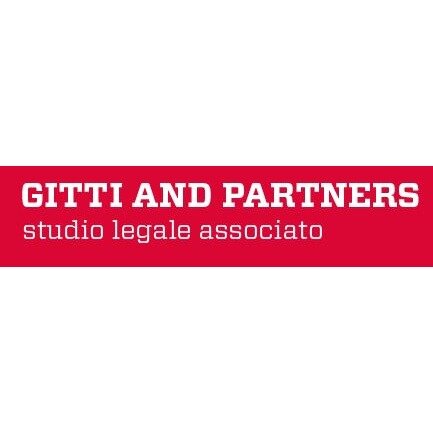Best Acquisition / Leveraged Finance Lawyers in Italy
Share your needs with us, get contacted by law firms.
Free. Takes 2 min.
Or refine your search by selecting a city:
List of the best lawyers in Italy
About Acquisition / Leveraged Finance Law in Italy
Acquisition and leveraged finance refers to the legal and financial processes involved in funding corporate acquisitions, including mergers and buyouts, often through the use of significant borrowing or leverage. In Italy, this area of law plays a key role in enabling companies and private equity investors to purchase businesses by utilizing external funds, such as bank loans or bond issuances. Italian acquisition finance transactions are complex and are governed by a blend of domestic laws and European Union regulations. Italian law firms with expertise in this field help structure deals, manage risks, ensure regulatory compliance, and facilitate negotiation between buyers, lenders, and sellers.
Why You May Need a Lawyer
There are multiple scenarios where consulting a lawyer experienced in acquisition or leveraged finance can be crucial:
- If you are a business owner considering selling your company and the buyer is seeking external financing.
- If you represent a company or fund planning to acquire another business using bank credit, bonds, or other leveraged instruments.
- When assessing the legal risks of financing arrangements, including guarantees, securities, and covenants required by lenders.
- If you are dealing with a cross-border acquisition involving Italian assets or companies.
- To ensure compliance with the Bank of Italy, Consob, and EU regulations regarding financial transactions and anti-money laundering.
- If you are negotiating the terms of finance agreements, intercreditor arrangements, or security packages.
- When restructuring or refinancing acquisition-related debt in response to financial difficulties or market changes.
Given the high value and complexity of such transactions, expert legal advice can help identify and mitigate risks, ensure contractual obligations are clear, and protect your interests throughout the process.
Local Laws Overview
Acquisition and leveraged finance in Italy is governed by a combination of the Italian Civil Code, the Italian Consolidated Law on Finance (Testo Unico della Finanza, TUF), banking regulations, and European directives.
- Banking Regulations: Only authorized banks and financial institutions can provide loans for leveraged finance, with strict prudential requirements applied by the Bank of Italy.
- Corporate Law: The Italian Civil Code sets out rules for mergers, demergers, and transfers of shares or businesses, and also limits a company’s ability to provide financial assistance in connection with the acquisition of its own shares (so-called “financial assistance” rules).
- Security and Guarantees: Creating and perfecting guarantees, pledges, and mortgages must comply with specific legal procedures to be enforceable against third parties.
- Insolvency Considerations: Debt pushdown structures and guarantees are subject to scrutiny, particularly regarding their validity in the event of insolvency or bankruptcy.
- Consob and Market Rules: If the target is a listed company, takeover rules, disclosure requirements, and procedures for public tender offers must be observed.
- Anti-Money Laundering: All acquisition finance transactions must adhere to stringent AML and KYC obligations under both Italian and EU law.
Professional advice is essential to navigate the regulatory landscape and ensure all elements of your transaction are legally robust.
Frequently Asked Questions
What is leveraged finance in Italy?
Leveraged finance involves funding acquisitions or other significant transactions using borrowed money, where the amount of debt is typically large relative to equity. In Italy, this often includes loans, bonds, or other credit facilities provided to a company to acquire another business.
Can an Italian company finance the acquisition of its own shares?
Italian law generally prohibits companies from providing loans, guarantees, or security for the acquisition of their own shares. There are exceptions, but these require compliance with strict legal procedures, such as board and shareholder approvals.
What are common types of security interests in Italian acquisition finance?
Typical security interests include pledges over shares, receivables, bank accounts, and mortgages over real estate. The creation and registration of each type of security is subject to specific legal procedures.
Who regulates acquisition and leveraged finance in Italy?
The Bank of Italy oversees banking and financial institution activities, while Consob regulates securities markets and public offers. Both work within the framework of Italian and EU law.
Is foreign financing allowed for acquisitions in Italy?
Yes, foreign banks and financial institutions can fund acquisitions in Italy, but compliance with Italian regulatory and transactional requirements is essential.
Are there restrictions on foreign acquirers?
Certain sensitive sectors, such as defense, telecoms, and infrastructure, may be subject to foreign investment control rules, requiring government approval or notification.
What is a “debt pushdown” and is it allowed in Italy?
A debt pushdown occurs when acquisition debt is placed on the target company’s balance sheet, typically via post-closing merger or refinancing. This is possible under Italian law but must respect corporate and financial assistance rules.
What documentation is involved in a typical leveraged buyout?
Documentation includes facility agreements, security documents, intercreditor agreements, acquisition agreements, and corporate approvals. Lawyers ensure each document complies with Italian law and reflects the intentions of all parties.
How long does an acquisition finance transaction usually take?
Timelines can vary widely, but a straightforward transaction involving Italian entities generally takes several weeks to a few months, depending on complexity, due diligence, and regulatory approvals.
What are the risks in leveraged finance deals?
Risks include insolvency of the borrower, enforceability of guarantees, regulatory sanctions for non-compliance, and unattractive loan terms. Legal counsel helps structure deals to minimize these risks.
Additional Resources
- Bank of Italy - Responsible for banking and supervision
- Consob (Commissione Nazionale per le Società e la Borsa) - Securities and stock market regulator
- Italian Ministry of Economy and Finance - Policy and official guidance on finance
- Assonime - Association of Italian joint-stock companies, useful for corporate law insights
- European Central Bank - Guidance on cross-border financial regulation
- Local chambers of commerce - Company registration and information
- Major law firms and financial associations in Italy - Many publish regular guides on acquisition and leveraged finance
Next Steps
If you require legal advice or support regarding acquisition or leveraged finance in Italy, consider taking the following steps:
- Assess your situation and clearly define your objectives for the proposed transaction.
- Gather all relevant documentation about your business and any potential targets or lenders.
- Contact a qualified lawyer or law firm specializing in acquisition and leveraged finance. Experience with cross-border initiatives and knowledge of local regulatory frameworks are critical.
- Discuss your plans, potential risks, and get an initial assessment of feasibility and compliance requirements.
- Work closely with your legal adviser throughout the negotiation, due diligence, and documentation phases to minimize legal and commercial risks.
Acquisition and leveraged finance transactions are complex and highly regulated in Italy. Engaging an experienced legal team as early as possible will help secure a more efficient process and better safeguard your business interests.
Lawzana helps you find the best lawyers and law firms in Italy through a curated and pre-screened list of qualified legal professionals. Our platform offers rankings and detailed profiles of attorneys and law firms, allowing you to compare based on practice areas, including Acquisition / Leveraged Finance, experience, and client feedback.
Each profile includes a description of the firm's areas of practice, client reviews, team members and partners, year of establishment, spoken languages, office locations, contact information, social media presence, and any published articles or resources. Most firms on our platform speak English and are experienced in both local and international legal matters.
Get a quote from top-rated law firms in Italy — quickly, securely, and without unnecessary hassle.
Disclaimer:
The information provided on this page is for general informational purposes only and does not constitute legal advice. While we strive to ensure the accuracy and relevance of the content, legal information may change over time, and interpretations of the law can vary. You should always consult with a qualified legal professional for advice specific to your situation.
We disclaim all liability for actions taken or not taken based on the content of this page. If you believe any information is incorrect or outdated, please contact us, and we will review and update it where appropriate.
Browse acquisition / leveraged finance law firms by city in Italy
Refine your search by selecting a city.















